A Level Further Mathematics
Why should I study A Level Further Maths?
![]()
Mathematics is everywhere around us. Further Mathematics offers the opportunity to explore mathematics in more detail, specialising in areas of individual interest, as the optional units allow for flexibility within the course. There is also the option to just study for the AS in Further Mathematics.
Students are well-supported within the maths department through our homework club, and are provided with many online materials to support their learning. The use of technology permeates the study of A Level Further Mathematics and students are supported by learning how to use technology such as the graphics calculator within lessons.
There is a high level of independent work required to study for a qualification in Further Mathematics and so an ability to take increasing responsibility for your own learning is essential.
Studying this subject will enable you to:
- Extend your range of mathematical skills and techniques.
- Use mathematical knowledge to make logical and reasoned decisions in solving problems in a variety of contexts.
- Apply mathematics in other fields of study and be aware of the relevance of mathematics to the world of work and to situations in society in general.
- Communicate your mathematical understanding to others.
- Use technology such as calculators and computers effectively and recognise when their use may be appropriate.
Course Specification
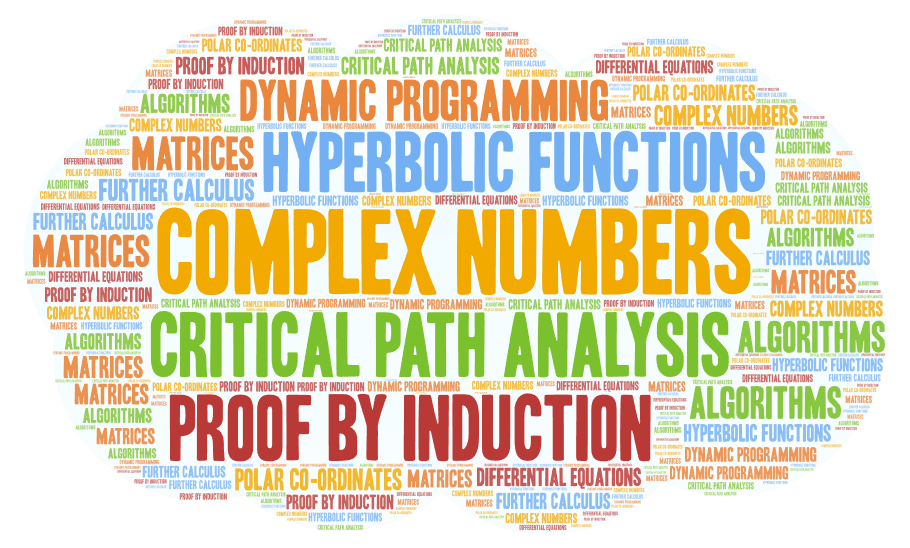
To study Further Mathematics you must also study A Level Mathematics, as many of the topics build on prior knowledge from the Mathematics course.
The Further Mathematics course is split as described below.
Pure 1 and Pure 2 (Compulsory)
- Complex numbers
- Differential equations
- Further algebra and functions
- Further calculus
- Further vectors
- Hyperbolic functions
- Matrices
- Polar coordinates
- Proof by induction
Further Maths (Option 1)
A choice of one of the following:
- Decision Mathematics 1
- Further Mechanics 1
- Further Pure Mathematics 1
- Further Statistics 1
Further Maths (Option 2)
A choice of one of the following:
- Decision Mathematics 1
- Decision Mathematics 2
- Further Mechanics 1
- Further Mechanics 2
- Further Pure Mathematics 2
- Further Statistics 1
- Further Statistics 2
Further Pure Mathematics includes further trigonometry, further vectors, further calculus, coordinate systems, further differential equations, inequalities, further numerical methods, groups, matrix algebra, further complex numbers, number theory and further sequences and series.
Decision Mathematics includes algorithms, networks, paths, flows, linear programming, critical path analysis, dynamic programming, recurrence relations, decision analysis, graph and game theory.
Further Mechanics includes momentum and impulse, work energy and power, elasticity, centres of mass, further kinematics, further dynamics and circulation motion.
Further Statistics includes probability, Poisson, binomial and geometric distributions, hypothesis testing, Chi squared tests, linear regression, correlation, normal distribution and confidence intervals.
Resources
- Calculators may be used in all examinations.
- We recommend use of a graphics calculator, which can be purchased through the college.
Examining Board Information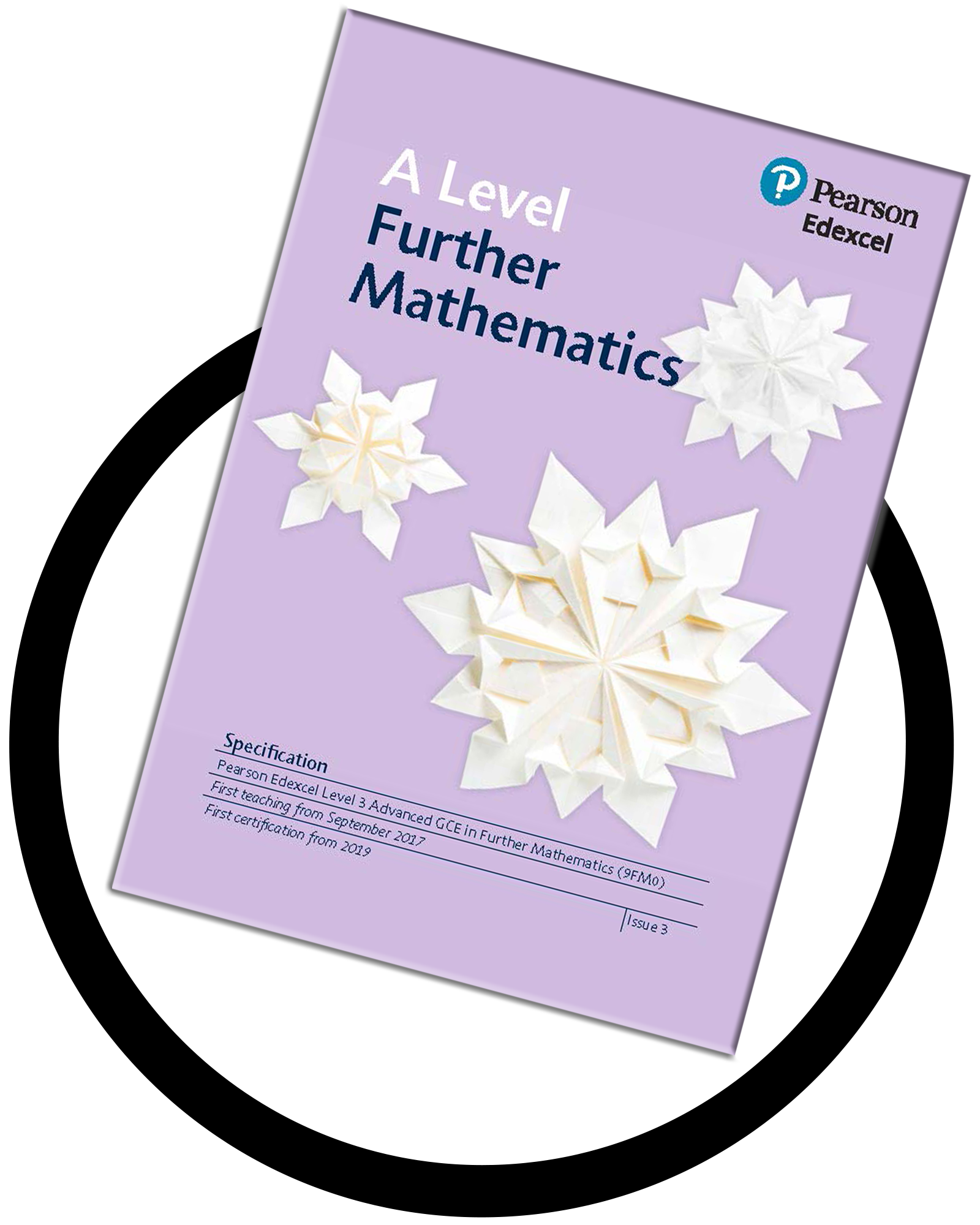
Board: Pearson Edexcel
Course Code: 9FM0
Click the image on the right to download the full course specification.
Widening Horizons
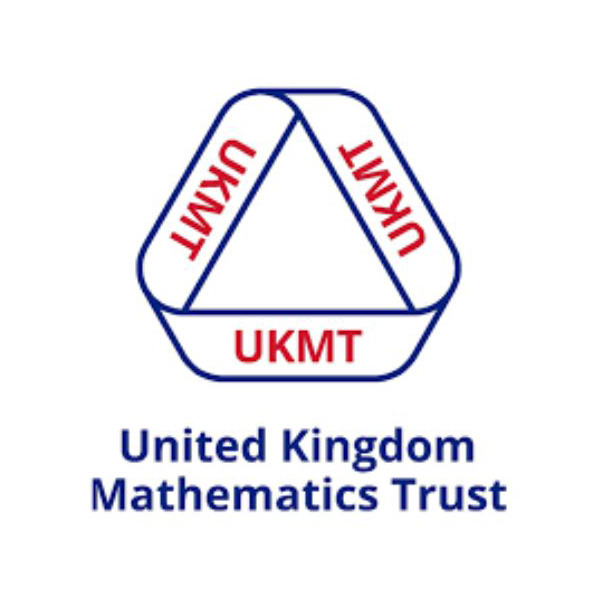

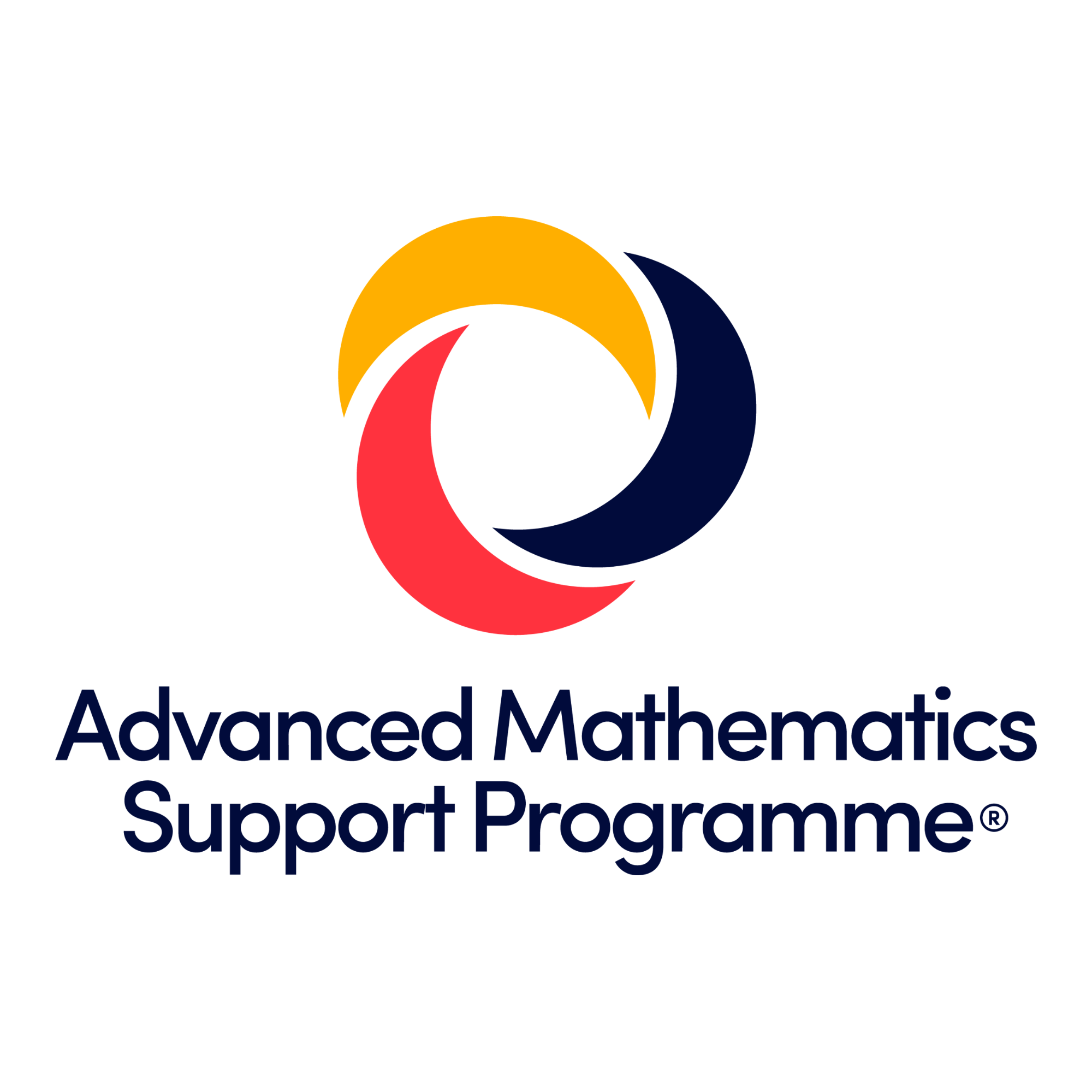
![]()
Students are encouraged to broaden their horizons outside the classroom by participating in maths challenges.
Senior Maths Challenge
Every October, we give students the opportunity to take part in the Senior Maths Challenge. This is an opportunity to utilise mathematical reasoning and fluency in using the basic mathematical techniques learned in lessons to apply and solve unique and interesting questions in a 90 minute challenge.
“A bit of fun” - Leonard A, Year 13
Online Courses
Opportunities also arise to register and take part in online courses such as COMPOS (Comprehensive Oxford Mathematics and Physics Online School) run in conjunction with Oxford University and the AMSP Problem Solving Matters Course.
This is a course designed for Year 12 students interested in applying for places at University to study maths, or students who wish to improve their mathematical problem-solving skills in preparation for a university course.
“Push yourself beyond your limits” - Paul W, Year 13
Maths Homework Club
All A Level students are encouraged to attend the College Homework Club that runs every Monday and Wednesday after school. Attendance gives students a fantastic opportunity to build on the work done in class and ask additional questions to support their learning, or to extend their understanding by attempting more problem-solving questions. Current students have all emphasised how much having maths teachers on hand to ask individual questions really helps build their confidence, and students also get a lot out of working with, and helping, each other.
Paired Maths Scheme
We also encourage you to help the Maths department in supporting Key Stage 3 students in their classes and through our paired maths scheme. This is where you will help a student in Year 7, 8 or 9 to develop their maths skills, which is a worthwhile coaching opportunity for you.
What advice do current A Level Further Maths students suggest?
- Make use of all resources given, like the topic based booklets
- Attend after school club (it’s basically free tuition)
- Make sure that if you don’t understand what is going on that you ask – the course moves really fast, so you will fall behind if you don’t
- Learn indices
- Keep up to date with homework – they’re all past exam questions
- Never miss a lesson!
Assessment Format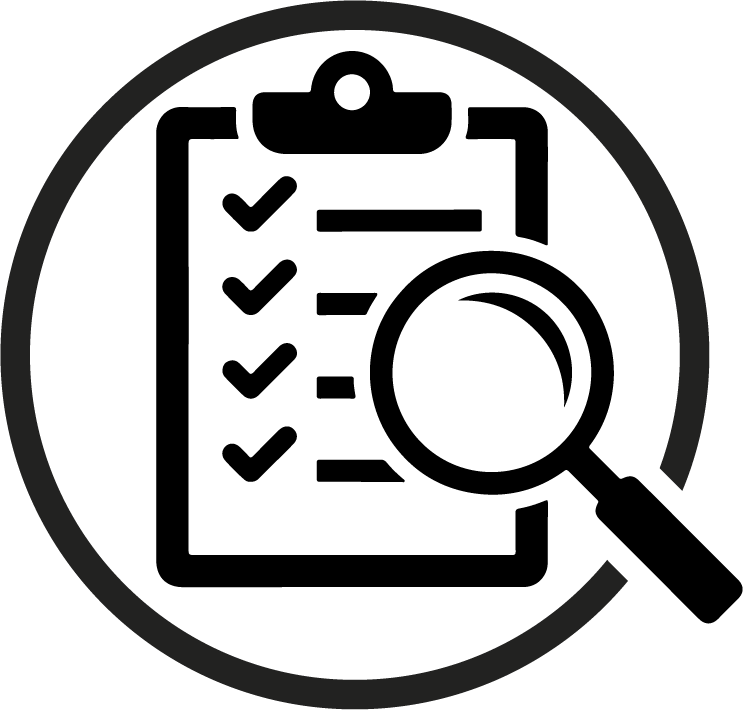
Paper 1: Core Pure Mathematics 1
Written examination (1 hr 30mins), which may contain questions on any topics from the Pure Mathematics content. It is worth 25% of the overall marks for this qualification.
Paper 2: Core Pure Mathematics 2
Written examination (1 hr 30mins), which may contain questions on any topics from the Pure Mathematics content. It is worth 25% of the overall marks for this qualification.
Paper 3: Further Maths Option 1
Written examination (1 hr 30mins). It is worth 25% of the overall marks for this qualification.
Paper 4: Further Maths Option 2
Written examination (1 hr 30mins). It is worth 25% of the overall marks for this qualification.
Course Entry Requirements
This course requires a Grade 8 or above in GCSE Mathematics (Higher Tier). You must also be studying A Level Mathematics.
Employability Skills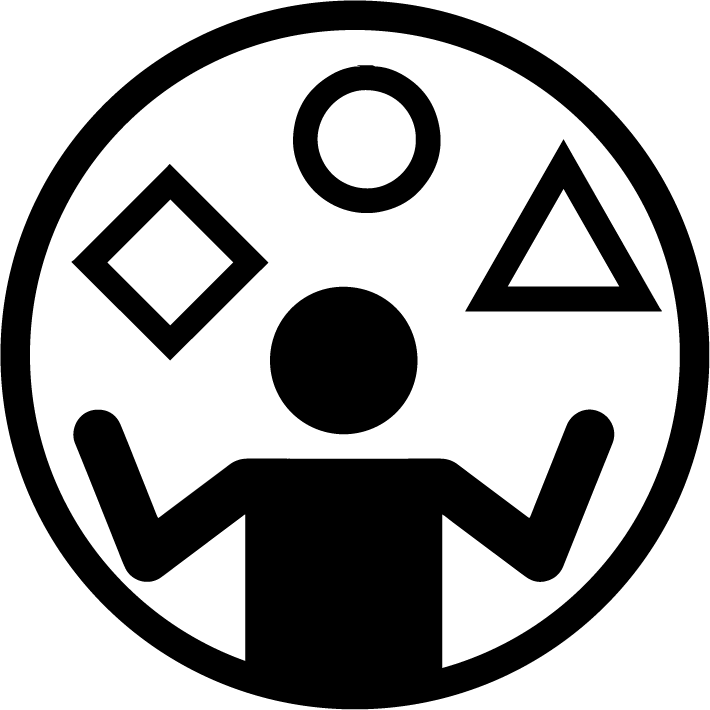
Employability Skills are essential skills, personal qualities and values that will enable you to thrive in any workplace. Along with good technical understanding and subject knowledge, employers often outline a set of skills that they want from an employee.
This course will help you to develop the following employability skills:
- Ability to think and reason logically.
- Individual problem-solving
- Awareness of the relevance of mathematics.
- An understanding of basic maths principles.
- Working with others to solve problems.
Next Steps
This is one of the most widely accepted and respected subject choices by universities and is one of the facilitating subjects. It may be a requirement for entry on to some degree courses such as Engineering.
A Level Mathematics may be useful for careers in Engineering, Research or Statistics.
10 Possible Careers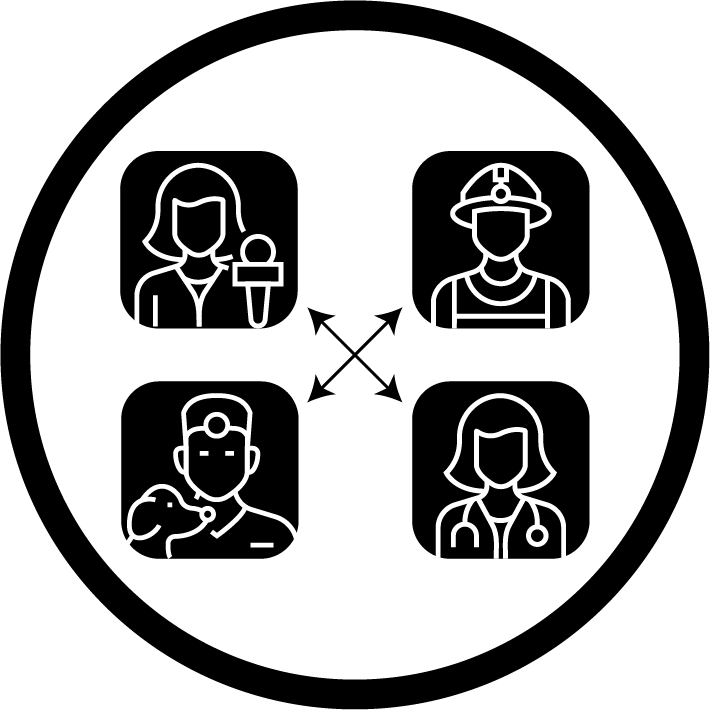
- Actuary
- Aeronautical Engineer
- Banker
- Chartered Accountant
- Data Analyst
- Insurance Analyst
- Investment Analyst
- Research Scientist (Maths)
- Secondary School Teacher
- Statistical Programmer
Student Profile: Sam
 Sam's subjects
Sam's subjects
A Level Mathematics
A Level Further Mathematics
A Level Computer Science,
A Level Physics
Duke of Edinburgh’s Gold Award Scheme
I found the work experience opportunities very useful as I want to become a commercial pilot, and it gave me an insight into the industry. I already knew the teachers here were good, and the option blocks weren’t restrictive, allowing me to choose the courses I need for my career.








